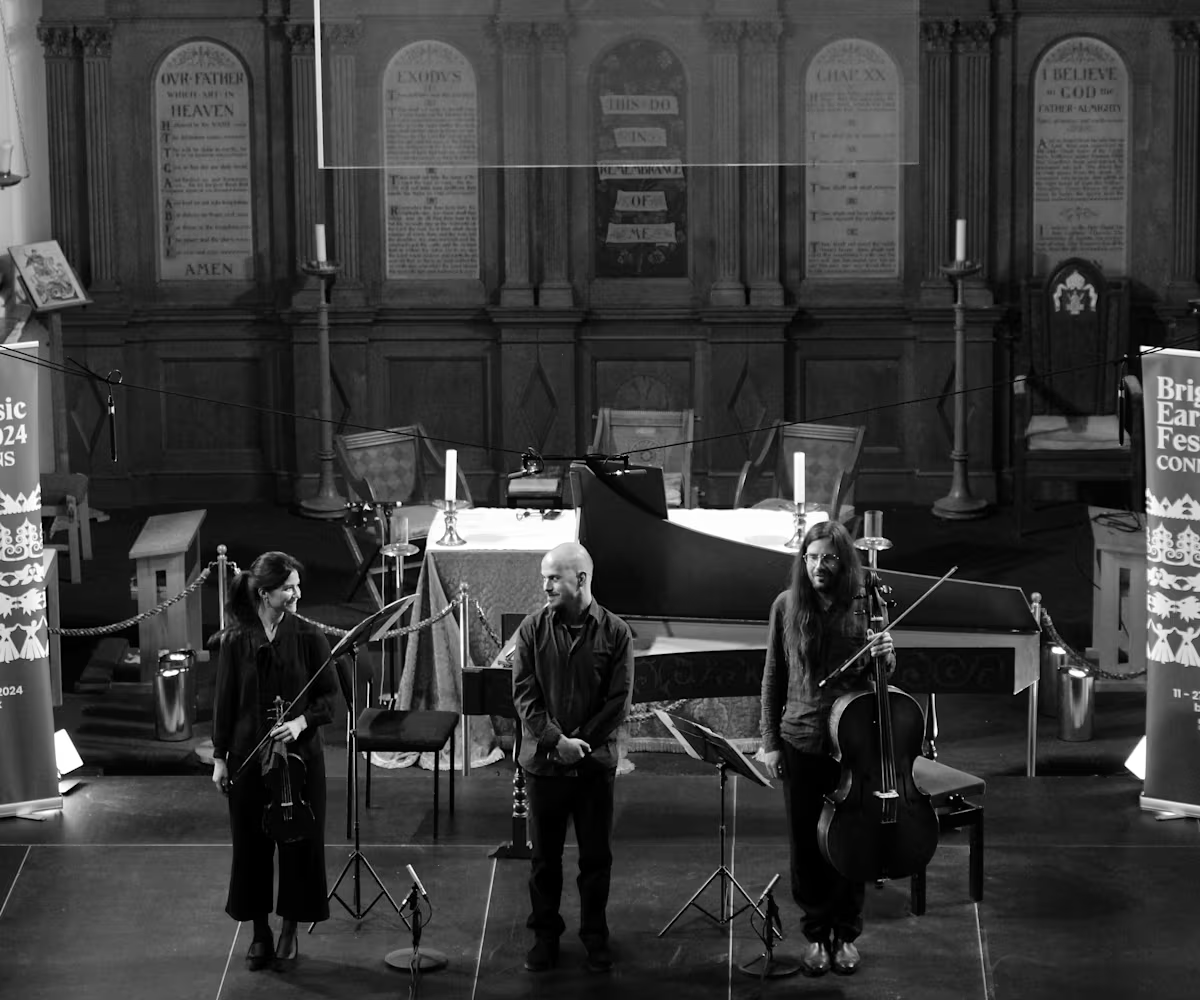Nocturnalia Ensemble
BREMF Live Showcase
Olea Mediterranea
Mojca Jerman (violin), Alex Mastichiadis (harpsichord) and Pablo Tejedor-Gutiérrez (cello)

Following the sonata tradition created by Arcangelo Corelli in Rome and Bologna, Francesc Manalt, Giuseppe Tartini and his student Michele Stratico perfected contrasted mixtures of slow and fast movements. As short miniatures, these pieces were supposed to reflect the human passions (psychological personalities and mind states and moods), the movements of the body (dance) and the imitation of the art of rhetoric (or how to structure and deliver a speech) in order to move and engage the audience.
The anonymous fandango mirrors our interest in the blending between folk and serious music, a controversial dance recreating a scene of seduction and erotic conquest between two lovers. This piece, despite the low-class origins of the genre, was copied for a Swedish nobleman living in Madrid and it has not been performed in the UK until today.
 Brighton Early Music Festival
Brighton Early Music Festival Sat, 19 October 2024
Sat, 19 October 2024 St George’s Church
St George’s Church 1:30pm
1:30pm £20; under 30s £10; under 12s free
£20; under 30s £10; under 12s free
Full Event Details

Inspired by the Connections theme of BREMF 2024, Nocturnalia Ensemble has curated a programme around many converging topics. Olea mediterranea, the chosen title, reflects how the new genre of the sonata (music to be played -as opposed to the "cantata"-to be sung) travelled and evolved through the Mediterranean sea as olives and their oil has done for several millennia. At the same time, these pieces reflect our geographical origins, from Greece, Slovenia and Spain, and our interest in making modern premieres of forgotten pieces.
Following the sonata tradition created by Arcangelo Corelli in Rome and Bologna, Francesc Manalt, Giuseppe Tartini and his student Michele Stratico perfected contrasted mixtures of slow and fast movements. As short miniatures, these pieces were supposed to reflect the human passions (psychological personalities and mind states and moods), the movements of the body (dance) and the imitation of the art of rhetoric (or how to structure and deliver a speech) in order to move and engage the audience.
The anonymous fandango mirrors our interest in the blending between folk and serious music, a controversial dance recreating a scene of seduction and erotic conquest between two lovers. This piece, despite the low-class origins of the genre, was copied for a Swedish nobleman living in Madrid and it has not been performed in the UK until today.
Venue Details & Map

Location
St George’s Church
St George’s Road (junction Abbey Road), Brighton BN2 1ED.

